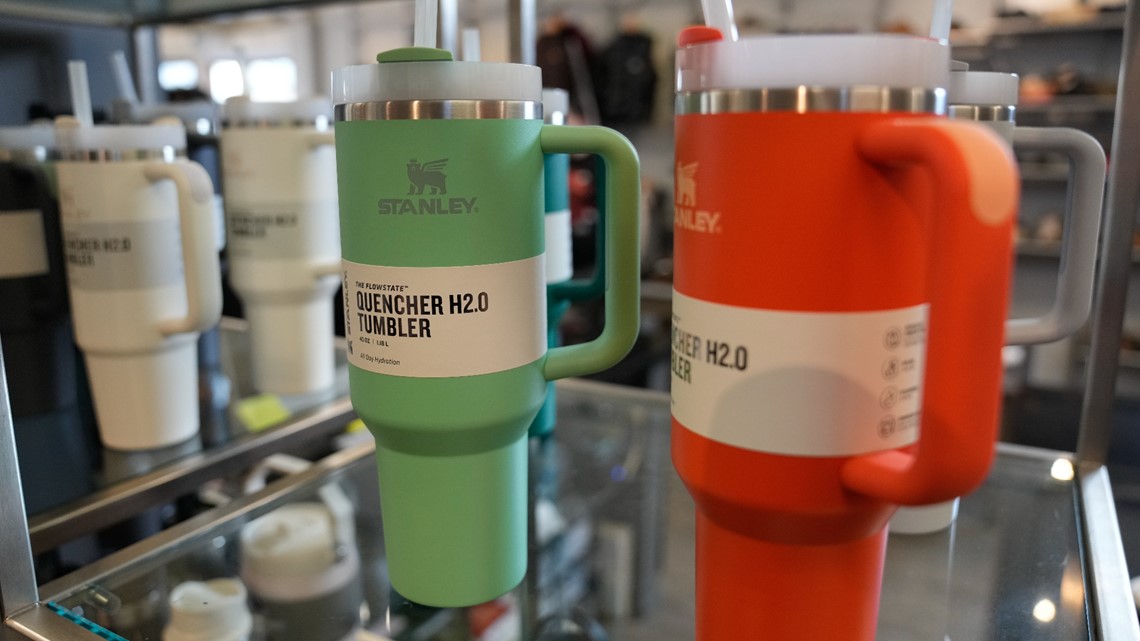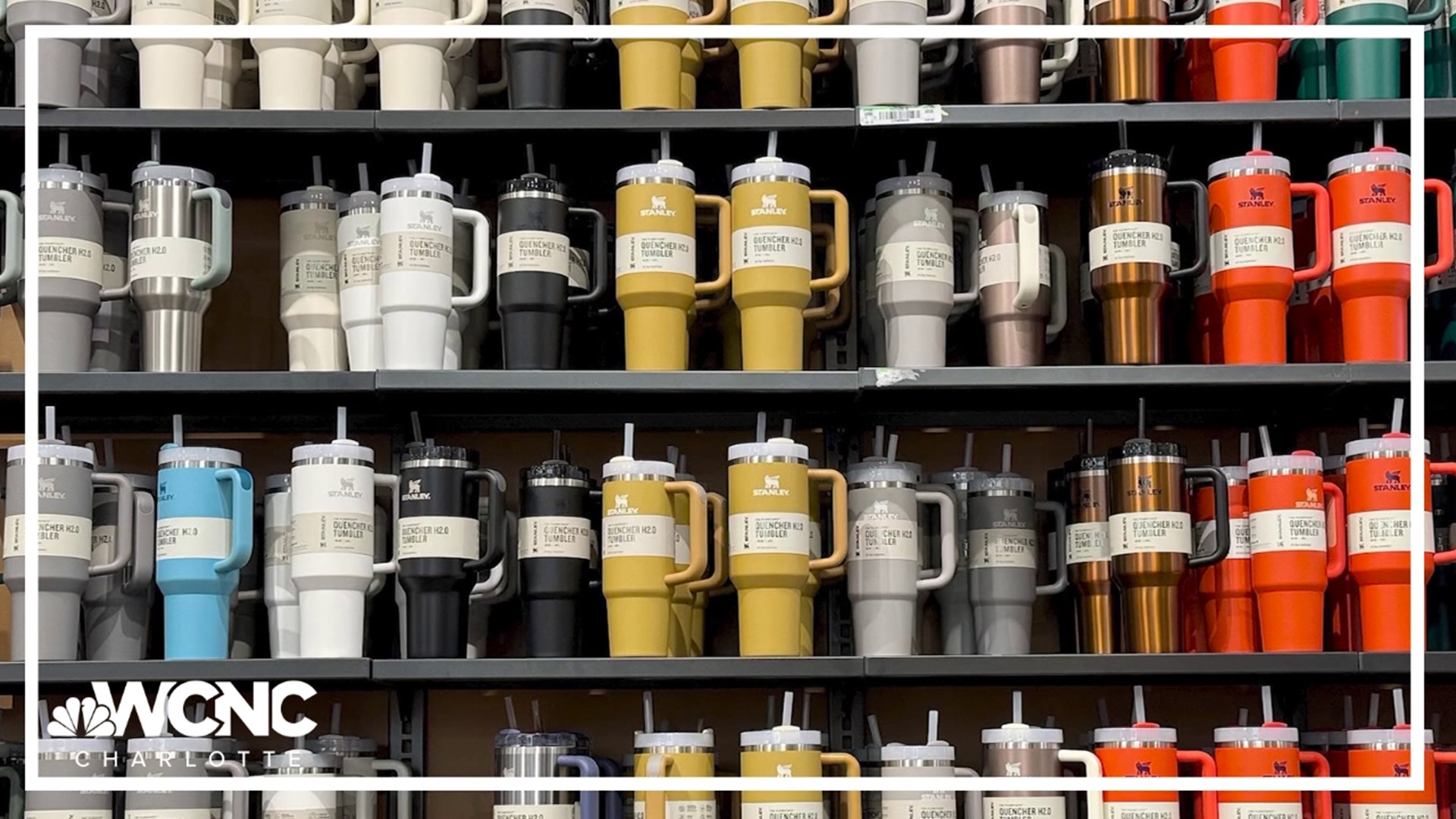WASHINGTON — At least three lawsuits have been filed against the maker of the popular Stanley tumbler cups over the revelation that the TikTok-famous drinkware contain lead.
Pacific Market International is the named defendant in three lawsuits filed in the past month related to the Stanley tumblers. PMI has owned the Stanley International brand since 2002.
The 40-oz tumblers sell for around $45 — that is, if you can find one. They've become hot commodities since going viral on TikTok, the popular video social media app.
After internet sleuths began claiming that the insulated tumblers contain lead, Stanley confirmed the rumors, but said the lead was safe.
A spokesperson for the company said Stanley seals its insulated products with an industry-standard pellet that includes a small trace of lead.
The pellet can be found underneath a small cap on the bottom of any Stanley tumbler.
The lead is inaccessible to consumers, according to the company, unless that stainless steel cover is damaged. So liquid inside the mug would not come into contact with the pellet.
The company says its cups meet all U.S. regulatory requirements.
But some consumers are crying foul, claiming that PMI and Stanley failed to disclose the lead until pressed, and allowed allegedly dangerous products onto the market.
In one lawsuit, brought by four California women, PMI is accused of padding their bottom line by hiding the fact that their tumblers contain lead, and launching a marketing campaign on social media emphasizing their safety.
"PMI has marketed its products to the public for years as a safe, practical item especially suitable for young women," the lawsuit reads. "But PMI did not disclose its use of lead in manufacturing until January 2024. Rather, it advertises its cups as being 'BPA-free' and made of stainless steel while omitting another key ingredient used in its vacuum seal: lead."
That class-action lawsuit is seeking refunds for all Stanley tumblers purchased in the U.S. It estimates the refunds would cost PMI about $70 million.


A separate class-action lawsuit, filed by a woman in Washington state, is asking for $5 million claiming the tumblers can become dangerous over time.
"If the tumbler is damaged or simply worn out from use over time and washing, the vacuum seal can break and expose the user to lead," the Washington lawsuit alleges.
The World Health Organization says no amount of lead is safe for human consumption. The highly toxic metal has been linked to birth and developmental defects and a number of health complications.
According to the Mayo Clinic, extended exposure to high levels of lead can lead to lead poisoning. While regulations have changed to minimize exposure, lead is still used in batteries, pipes, pottery, solder, and some cosmetics.
Across the country, there is an ongoing effort at nearly every level of government to remove aging lead-based pipes from the water infrastructure that supplies drinking water to U.S. homes and businesses.
A third lawsuit, reported on by HuffPost, points out that the tumblers are marketed toward active use, which may increase the risk that the seal containing the lead pellet could become compromised.
According to HuffPost, PMI "advertises and sells the Stanley cups to consumers with the assurance that they can be used during activity (i.e. hiking and climbing) where a consumer could drop and/or damage the Stanley cups.”
But in a separate article, HuffPost reported that experts believe there is little danger from using the tumblers, even if they do contain lead.
“The risk of these cups is infinitesimally small,” Dr. Andrew Monte, a professor of emergency medicine and medical toxicology with the University of Colorado Anschutz Medical Center, told HuffPost. "People do not have to be concerned about using these products, though if the cup is severely damaged, and the lead is accessible, throw it out."
No official reports of health complications from Stanley tumblers have been publicly disclosed.
All of the current Stanley tumbler lawsuits were brought by women, a notable statistic given the cups' marketing campaign focused on young female customers. As an op-ed in The Guardian put it, "Stanley cup feminism" has ensured that the craze over the cups is a phenomenon largely among young women.
"And not just female but aggressively feminine," op-ed columnist Arwa Mahdawi wrote.
The lawsuits all appear to touch on this idea of women being the major victims of the potential for lead poisoning. In one, the plaintiffs argued that PMI committed fraud by using ads "targeting young parents and claiming Stanley cups were an essential resource for new mothers (when, in fact, the cups contained a substance that could cause permanent disabilities in young children)."
No trial dates appear to have been set for any of the pending lawsuits.

